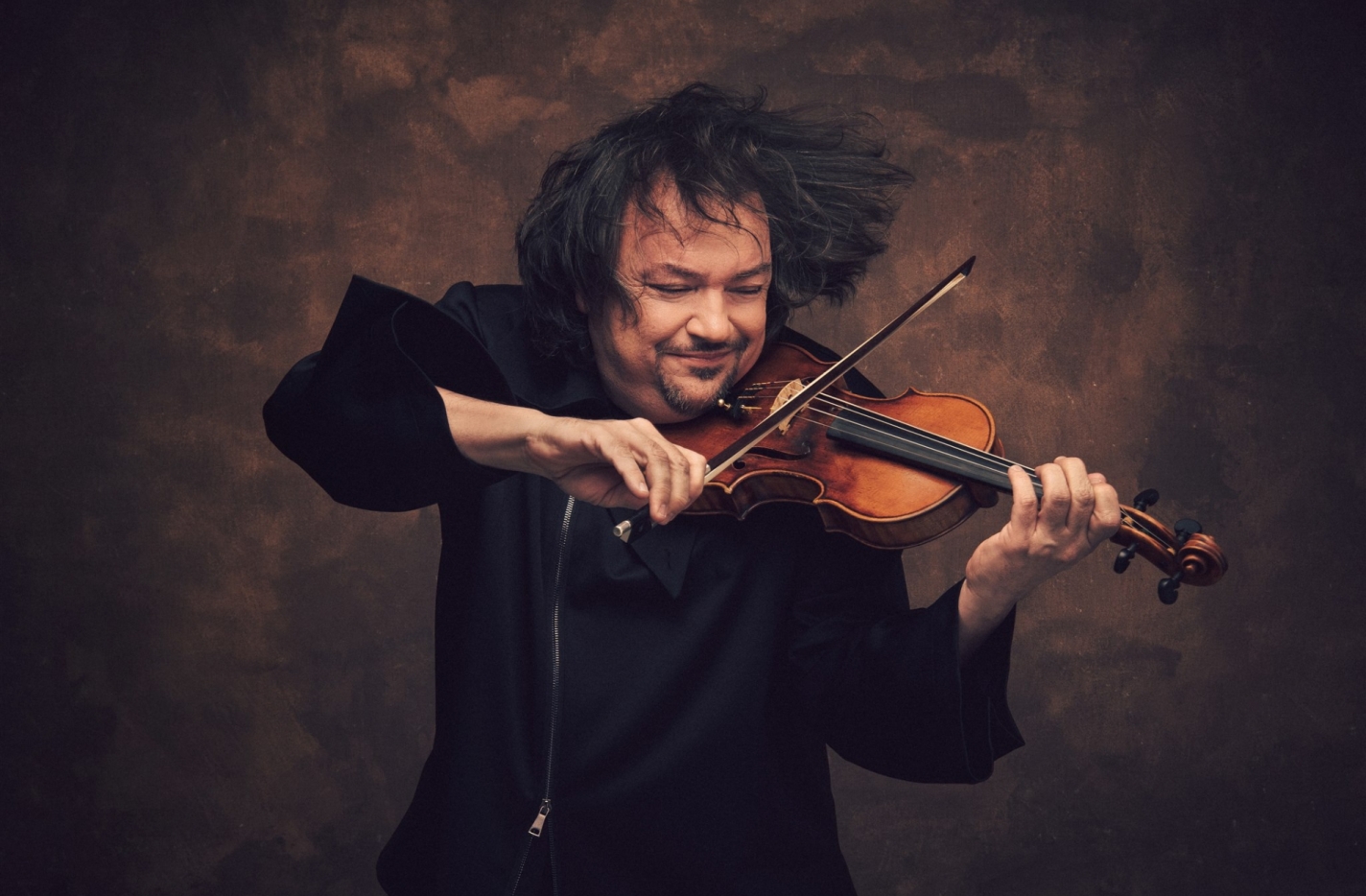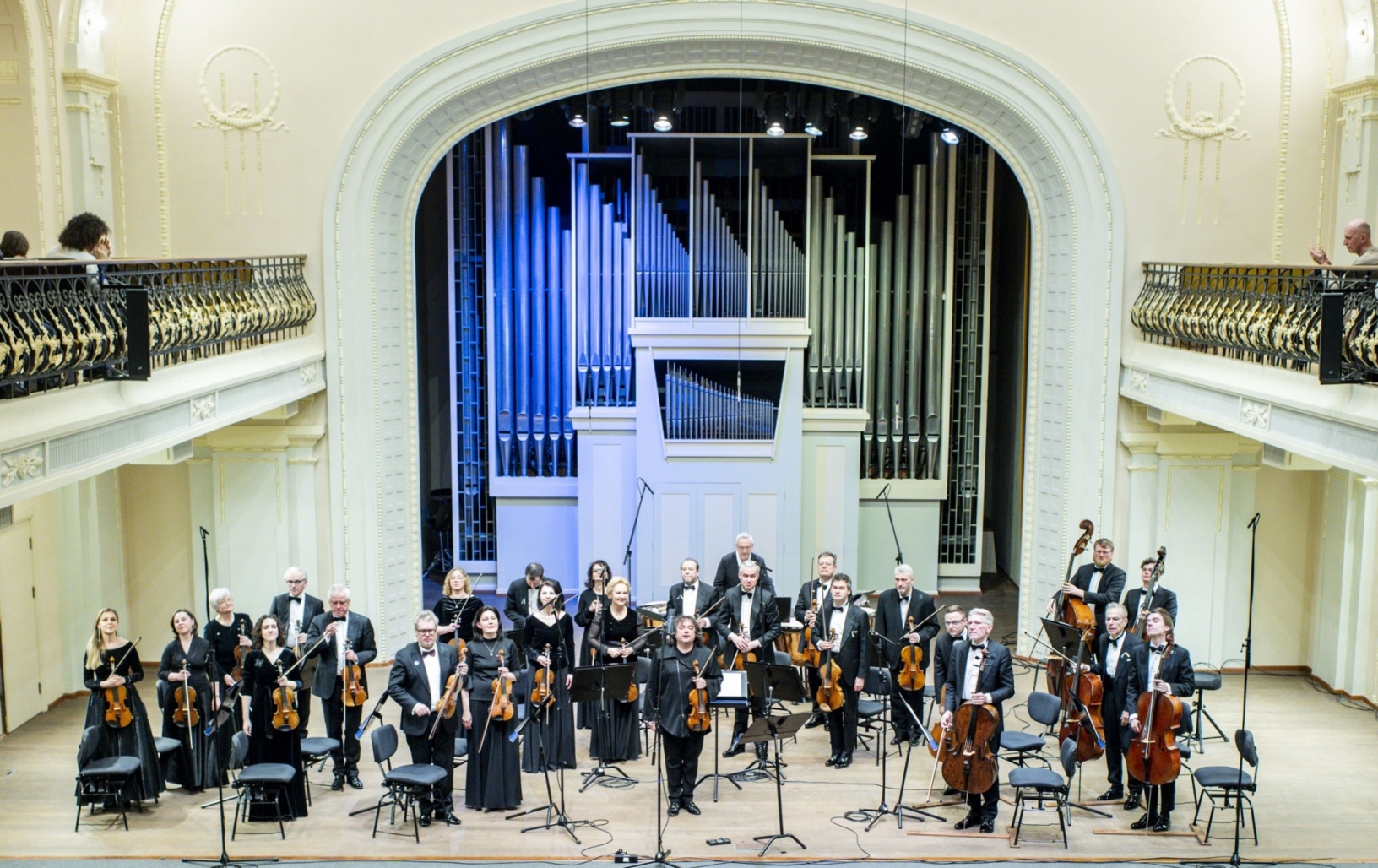Masterpieces of Paganini and Schubert. LCO, Sergej Krylov
Performers
LITHUANIAN CHAMBER ORCHESTRA
Artistic director, soloist and conductor SERGEJ KRYLOV (violin)
Programme
FRANZ SCHUBERT – String quartet No. 14 in D minor, D. 810 Der Tod und das Mädchen (Death and the Maiden, string orchestra version)
NICCOLÒ PAGANINI – Concerto for violin and orchestra No. 1 in D major, Op. 6 (chamber orchestra arrangement by Tomas Petrikis)
About
“The classical symphony has been invested with a rather intimate sound, and the orchestra members together admired this masterpiece and rendered it unaffectedly. The artistic director’s long-lasting work with this distinguished ensemble bore its fruit, and it seemed that the unified interpretation and ease of playing was achieved not even by the conductor’s gesture, but by his thought – so sensitively did the musicians react to the lead. This level of leadership shows the precision and vitality of the creative style discovered, although Sergej Krylov, interviewed after the concert, described the evolution of the orchestra as gradus ad parnasum, i.e. climbing the steps to the heavenly peaks, and those steps, of course, never end in music...” – Dalia Tamošaitytė writes about the Lithuanian Chamber Orchestra and its artistic director, violinist and conductor Krylov. The musicians open their 64th season with a concert featuring the music of geniuses of Romanticism.
Franz Schubert composed his String Quartet No.14 in D minor in 1824, having just emerged from a serious illness, burdened by financial hardship and spiritually exhausted. The title Der Tod und das Mädchen (Death and the Maiden) derives from a musical quotation in the second movement from a song of the same name he had composed in 1817, a setting of the poem of Matthias Claudius. The quartet’s music is characterised by outbursts of earthly joy and tragic pain, as the composer seems to contemplate questions of death and life.
The Italian virtuoso Niccolò Paganini is known in music history as a violin star with an unparalleled reputation, who toured Europe in the most spectacular fashion, and was admired by Chopin, Liszt and Schubert. Anyone who heard Paganini was amazed by his talent, which was far beyond the human capacity. He was not only an outstanding virtuoso, but also a pioneer and composer of a new romanticist performing style. His five innovatory violin concertos had a profound influence on the development of the instrumental concerto genre. With a perfect knowledge of the instrument’s possibilities, Paganini was unprecedentedly daring in his use of all the techniques of violin playing. The First violin concerto in D major, composed in 1811, is a large-scale, highly virtuosic work based on Italian folklore and rhythms, imbued with colourful harmonies.



